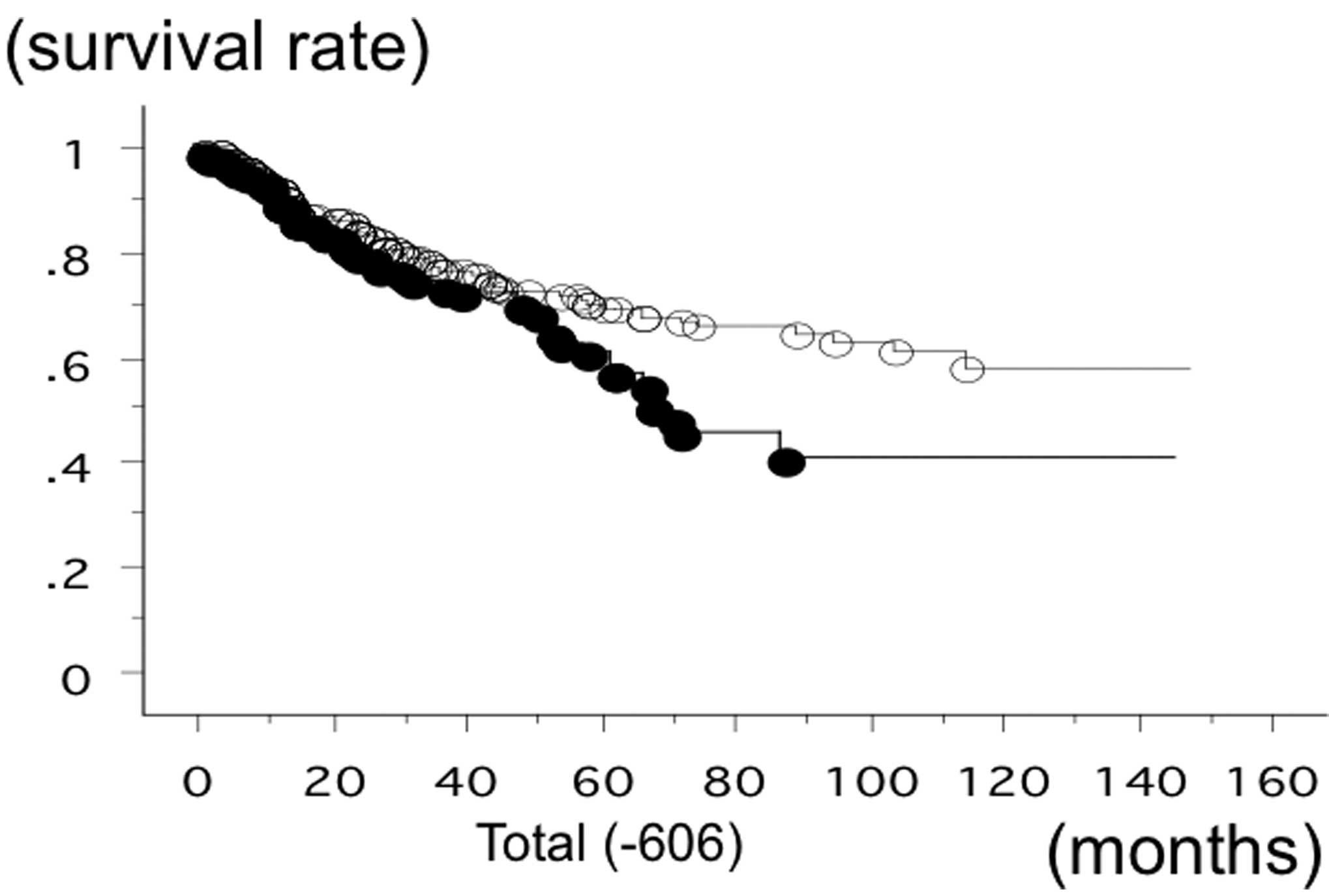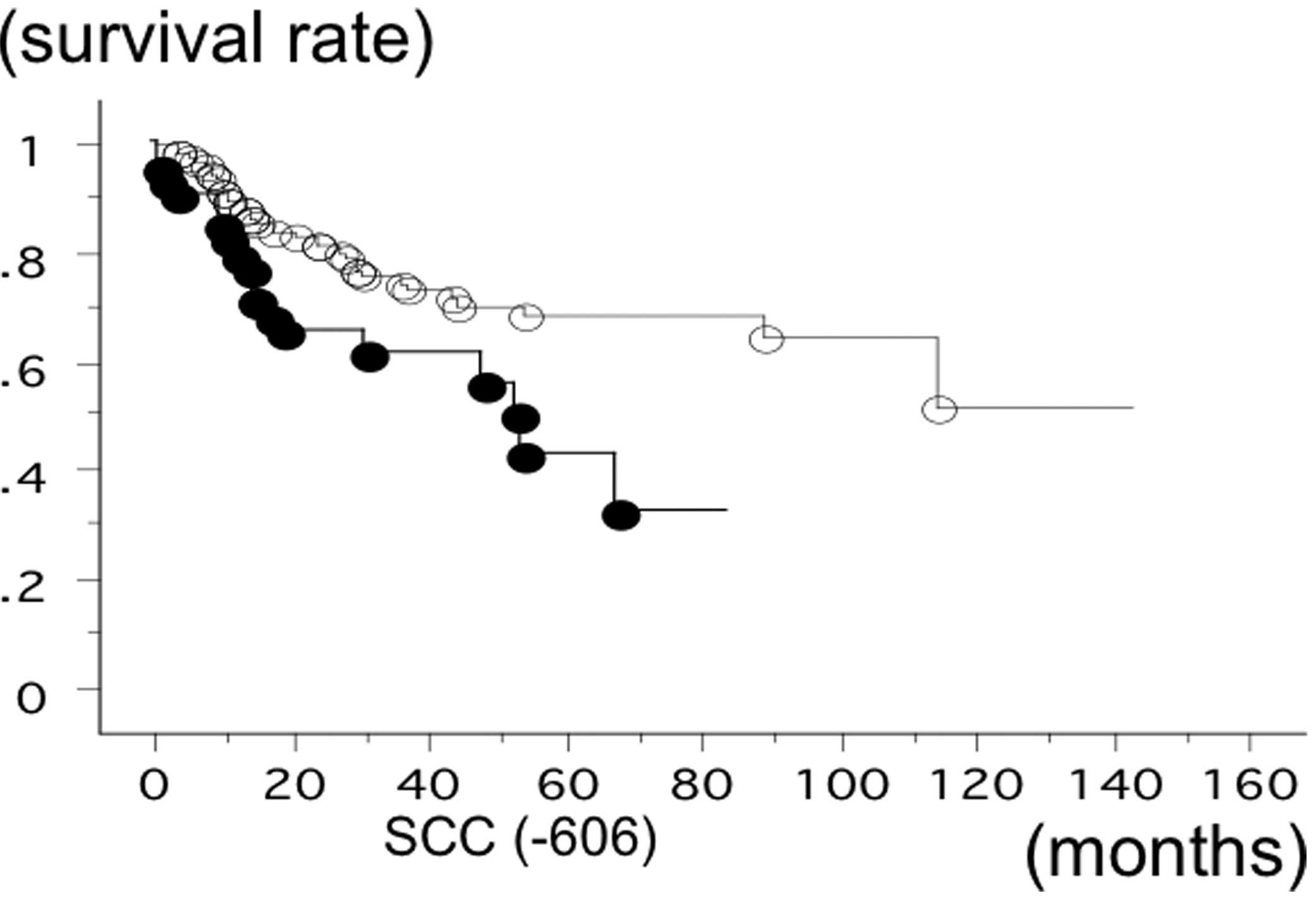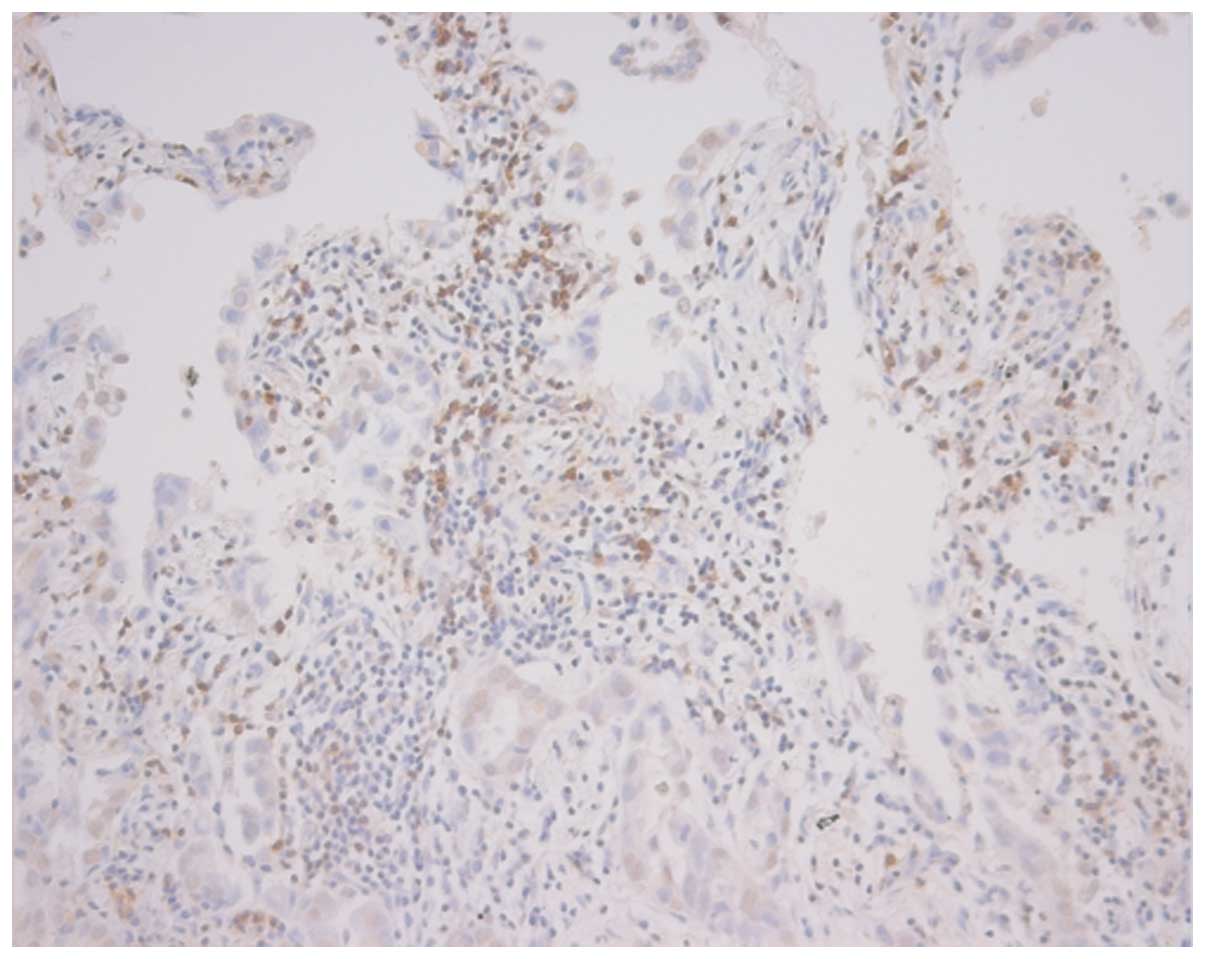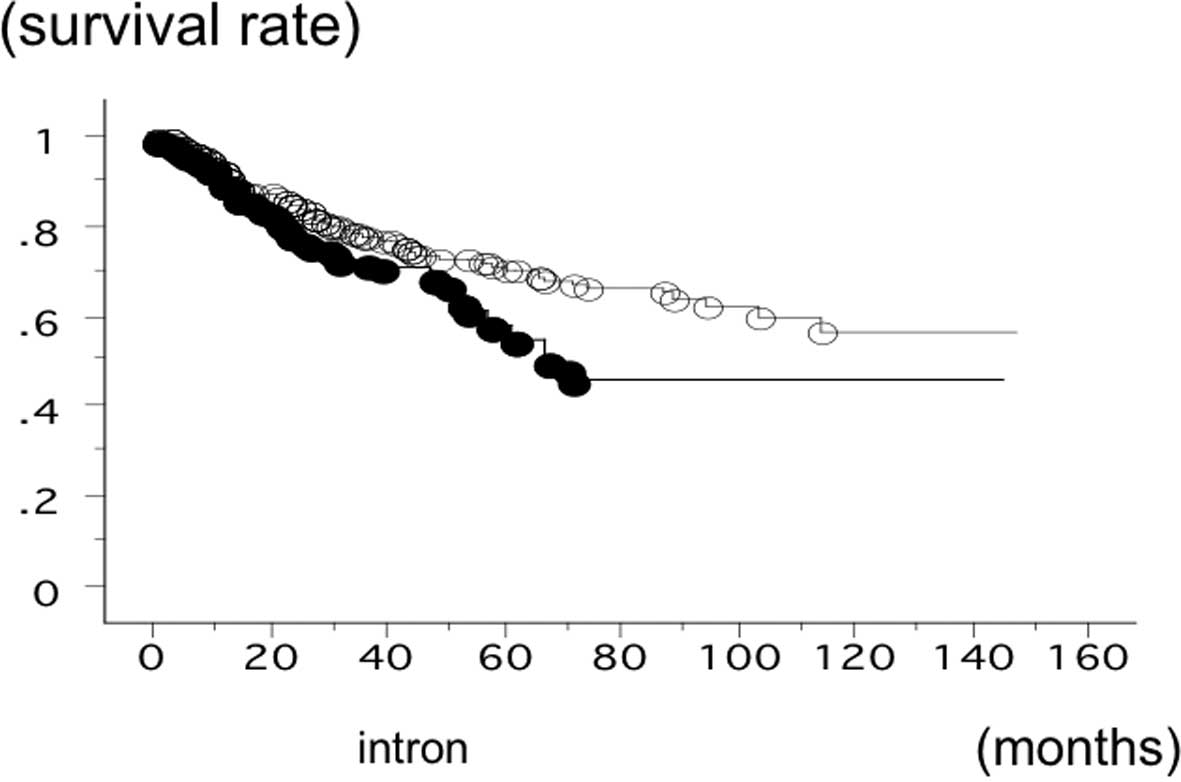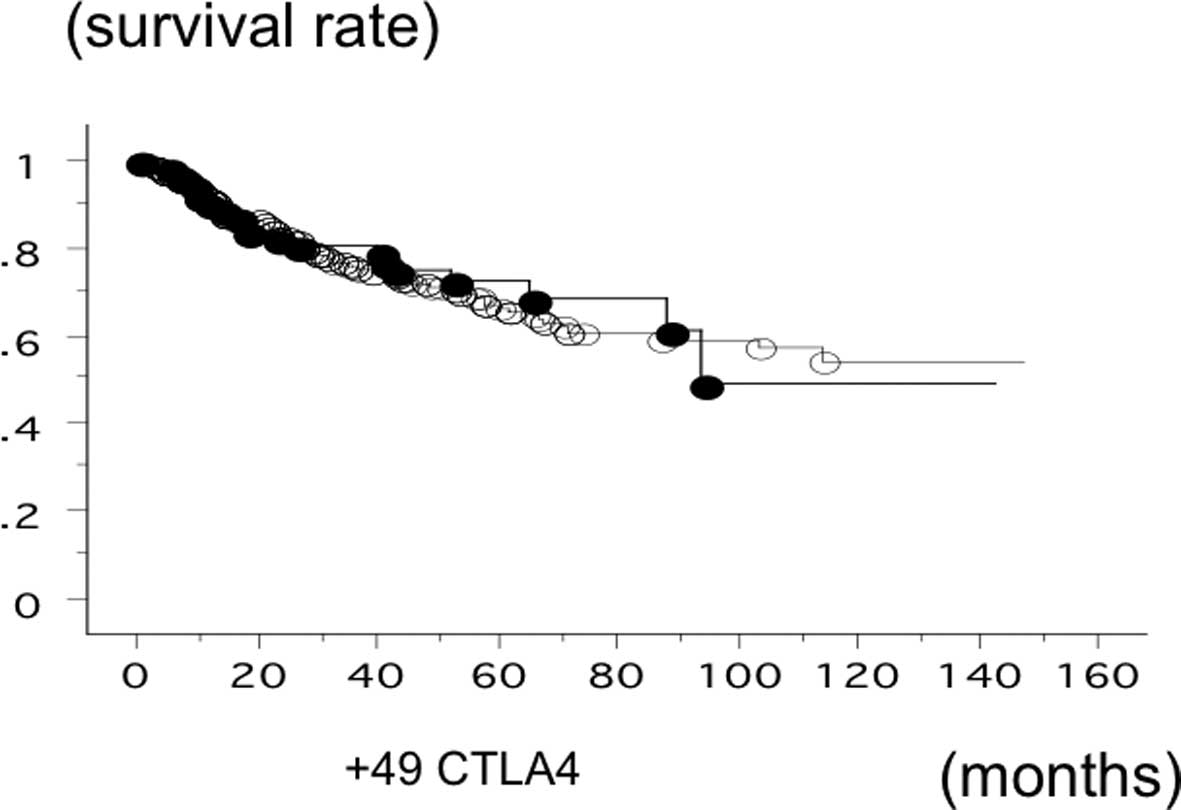|
1
|
Ginsberg RJ, Kris MK and Armstrong G:
Cancer of the lung. Principles and Practice of Oncology. 4th
edition. Lippincott; Philadelphia: pp. 673–682. 1993
|
|
2
|
Amano J, Kuwano H and Yokomise H: Thoracic
and cardiovascular surgery in Japan during 2011: Annual report by
The Japanese Association for Thoracic Surgery. Gen Thorac
Cardiovasc Surg. 61:578–607. 2013. View Article : Google Scholar : PubMed/NCBI
|
|
3
|
Postmus PE: Chemotherapy for non-small
cell lung cancer: the experience of the Lung Cancer Cooperative
Group of the European Organization for Research and Treatment of
Cancer. Chest. 113(Suppl 1): 28S–31S. 1998. View Article : Google Scholar : PubMed/NCBI
|
|
4
|
Zielinski C, Knapp S, Mascaux C and Hirsch
F: Rationale for targeting the immune system through checkpoint
molecule blockade in the treatment of non-small-cell lung cancer.
Ann Oncol. 24:1170–1179. 2013. View Article : Google Scholar : PubMed/NCBI
|
|
5
|
Hanahan D and Weinberg RA: Hallmarks of
cancer: the next generation. Cell. 144:646–674. 2011. View Article : Google Scholar : PubMed/NCBI
|
|
6
|
Zou W: Immunosuppressive networks in the
tumour environment and their therapeutic relevance. Nature Rev
Cancer. 5:263–274. 2005. View
Article : Google Scholar : PubMed/NCBI
|
|
7
|
Chen L, Linsley PS and Hellström KE:
Costimulation of T cells for tumor immunity. Immunol Today.
14:483–486. 1993. View Article : Google Scholar : PubMed/NCBI
|
|
8
|
Boise LH, Noel PJ and Thompson CB: CD28
and apoptosis. Curr Opin Immunol. 7:620–625. 1995. View Article : Google Scholar : PubMed/NCBI
|
|
9
|
Watts TH and DeBenedette MA: T cell
co-stimulatory molecules other than CD28. Curr Opin Immunol.
11:286–293. 1999. View Article : Google Scholar : PubMed/NCBI
|
|
10
|
Dong H, Strome SE, Salomao DR, et al:
Tumor-associated B7-H1 promotes T-cell apoptosis: a potential
mechanism of immune evasion. Nat Med. 8:793–800. 2002. View Article : Google Scholar : PubMed/NCBI
|
|
11
|
Iwai Y, Ishida M, Tanaka Y, et al:
Involvement of PD-L1 on tumor cells in the escape from host immune
system and tumor immunotherapy by PD-L1 blockade. Proc Natl Acad
Sci USA. 99:12293–12297. 2002. View Article : Google Scholar : PubMed/NCBI
|
|
12
|
Zou W and Chen L: Inhibitory B7-family
molecules in the tumour microenvironment. Nat Rev Immunol.
8:467–477. 2008. View
Article : Google Scholar : PubMed/NCBI
|
|
13
|
Topalian SL, Hodi FS, Brahmer JR, et al:
Safety, activity, and immune correlates of anti-PD-1 antibody in
cancer. N Engl J Med. 366:2443–2454. 2012. View Article : Google Scholar : PubMed/NCBI
|
|
14
|
Brahmer JR, Tykodi SS, Chow LQ, et al:
Safety and activity of anti-PD-L1 antibody in patients with
advanced cancer. N Engl J Med. 366:2455–2465. 2012. View Article : Google Scholar : PubMed/NCBI
|
|
15
|
Ishizaki Y, Yukaya N, Kusuhara K, et al:
PD1 as a common candidate susceptibility gene of subacute
sclerosing panencephalitis. Hum Genet. 127:411–419. 2010.
View Article : Google Scholar : PubMed/NCBI
|
|
16
|
Konishi J, Yamazaki K, Azuma M, et al:
B7-H1 expression on non-small cell lung cancer cells and its
relationship with tumor-infiltrating lymphocytes and their PD-1
expression. Clin Cancer Res. 10:5094–5100. 2004. View Article : Google Scholar : PubMed/NCBI
|
|
17
|
Sasaki H, Suzuki A, Shitara M, et al:
PD-L1 gene expression in Japanese lung cancer patients. Biomed Rep.
1:93–96. 2013.PubMed/NCBI
|
|
18
|
Sjöblom T, Jones S, Wood LD, et al: The
consensus coding sequences of human breast and colorectal cancers.
Science. 314:268–274. 2006.
|
|
19
|
Topalian SL, Weiner GJ and Pardoll DM:
Cancer immunotherapy comes of age. J Clin Oncol. 29:4828–4836.
2011. View Article : Google Scholar : PubMed/NCBI
|
|
20
|
Mellman I, Coukos G and Dranoff G: Cancer
immunotherapy comes of age. Nature. 480:480–489. 2011. View Article : Google Scholar : PubMed/NCBI
|
|
21
|
Drake CG, Jaffee E and Pardoll DM:
Mechanisms of immune evasion by tumors. Adv Immunol. 90:51–81.
2006. View Article : Google Scholar : PubMed/NCBI
|
|
22
|
Mizoguchi H, O’Shea JJ, Longo DL, et al:
Alterations in signal transduction molecules in T lymphocytes from
tumor-bearing mice. Science. 258:1795–1798. 1992. View Article : Google Scholar : PubMed/NCBI
|
|
23
|
Hodi FS, O’Day SJ, McDermott DF, et al:
Improved survival with ipilimumab in patients with metastatic
melanoma. N Engl J Med. 363:711–723. 2010. View Article : Google Scholar
|
|
24
|
Robert C, Thomas L, Bondarenko I, et al:
Ipilimumab plus dacarbazine for previously untreated metastatic
melanoma. N Engl J Med. 364:2517–2526. 2011. View Article : Google Scholar : PubMed/NCBI
|
|
25
|
Fife BT and Bluestone JA: Control of
peripheral T-cell torelance and autoimmunity via the CTLA-4 and
PD-1 pathways. Immunol Rev. 224:166–182. 2008. View Article : Google Scholar : PubMed/NCBI
|
|
26
|
Zhang Y, Zhang J, Deng Y, et al:
Polymorphisms in the cytotoxic T-lymphocyte antigen 4 gene and
cancer risk: a meta-analysis. Cancer. 117:4312–4324. 2011.
View Article : Google Scholar : PubMed/NCBI
|
|
27
|
Song B, Liu Y, Liu J, et al: CTLA-4
+49A>G polymorphism is associated with advanced non-small cell
lung cancer prognosis. Respiration. 82:439–444. 2011.
|
|
28
|
Dong H, Zhu G, Tamada K and Chen L: B7-H1,
a third member of the B7 family, co-stimulates T-cell proliferation
and interleukin-10 secretion. Nat Med. 5:1365–1369. 1999.
View Article : Google Scholar : PubMed/NCBI
|
|
29
|
Freeman GJ, Long AJ, Iwai Y, et al:
Engagement of the PD-1 immunoinhibitory receptor by a novel B7
family member leads to negative regulation of lymphocyte
activation. J Exp Med. 192:1027–1034. 2000. View Article : Google Scholar : PubMed/NCBI
|
|
30
|
Topalian SL, Drake CG and Pardoll DM:
Targeting the PD-1/B7-H1 (PD-L1) pathway to activate anti-tumor
immunity. Curr Opin Immunol. 24:207–212. 2012. View Article : Google Scholar : PubMed/NCBI
|
|
31
|
Brahmer JR, Drake CG, Wollner I, et al:
Phase I study of single-agent anti-programmed death-1 (MDX-1106) in
refractory solid tumors: safety, clinical activity,
pharmacodynamics, and immunologic correlates. J Clin Oncol.
28:3167–3175. 2010. View Article : Google Scholar
|
|
32
|
Karim R, Jordanova ES, Piersma SJ, et al:
Tumor-expressed B7-H1 and B7-DC in relation to PD-1+ T-cell
infiltration and survival of patients with cervical carcinoma. Clin
Cancer Res. 15:6341–6347. 2009. View Article : Google Scholar : PubMed/NCBI
|
|
33
|
Sznol M and Chen L: Antagonist antibodies
to PD-1 and B7-H1 (PD-L1) in the treatment of advanced human
cancer. Clin Cancer Res. 19:1021–1034. 2013. View Article : Google Scholar
|
|
34
|
Kong EK, Prokunina-Olsson L, Wong WH, et
al: A new haplotype of PDCD1 is associated with rheumatoid
arthritis in Hong Kong Chinese. Arthritis Rheum. 52:1058–1062.
2005. View Article : Google Scholar : PubMed/NCBI
|
|
35
|
Rekhtman N, Ang DC, Sima CS, et al:
Immunohistochemical algorithm for differentiation of lung
adenocarcinoma and squamous cell carcinoma based on large series of
whole-tissue sections with validation in small specimens. Mod
Pathol. 24:1348–1359. 2011. View Article : Google Scholar
|















